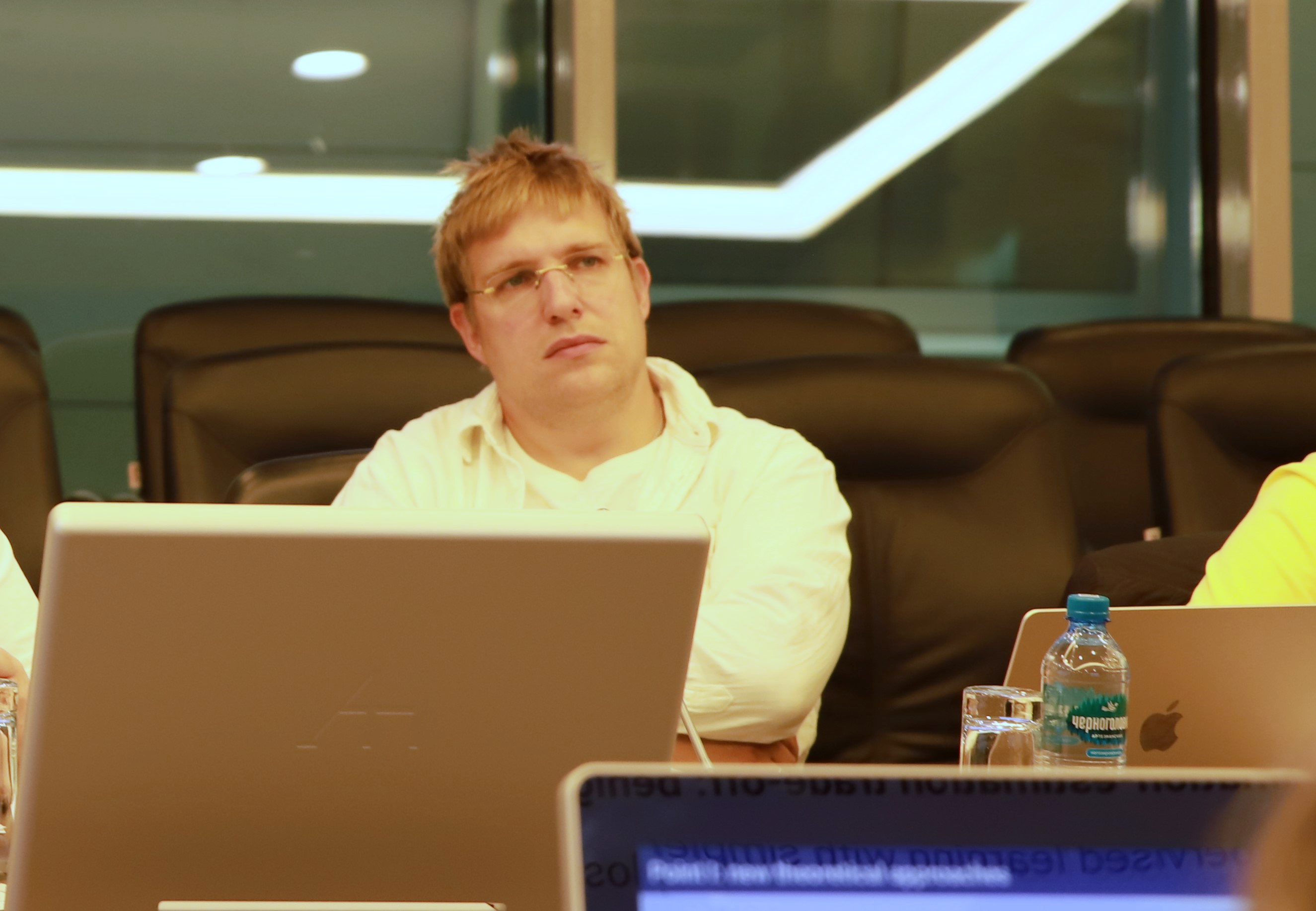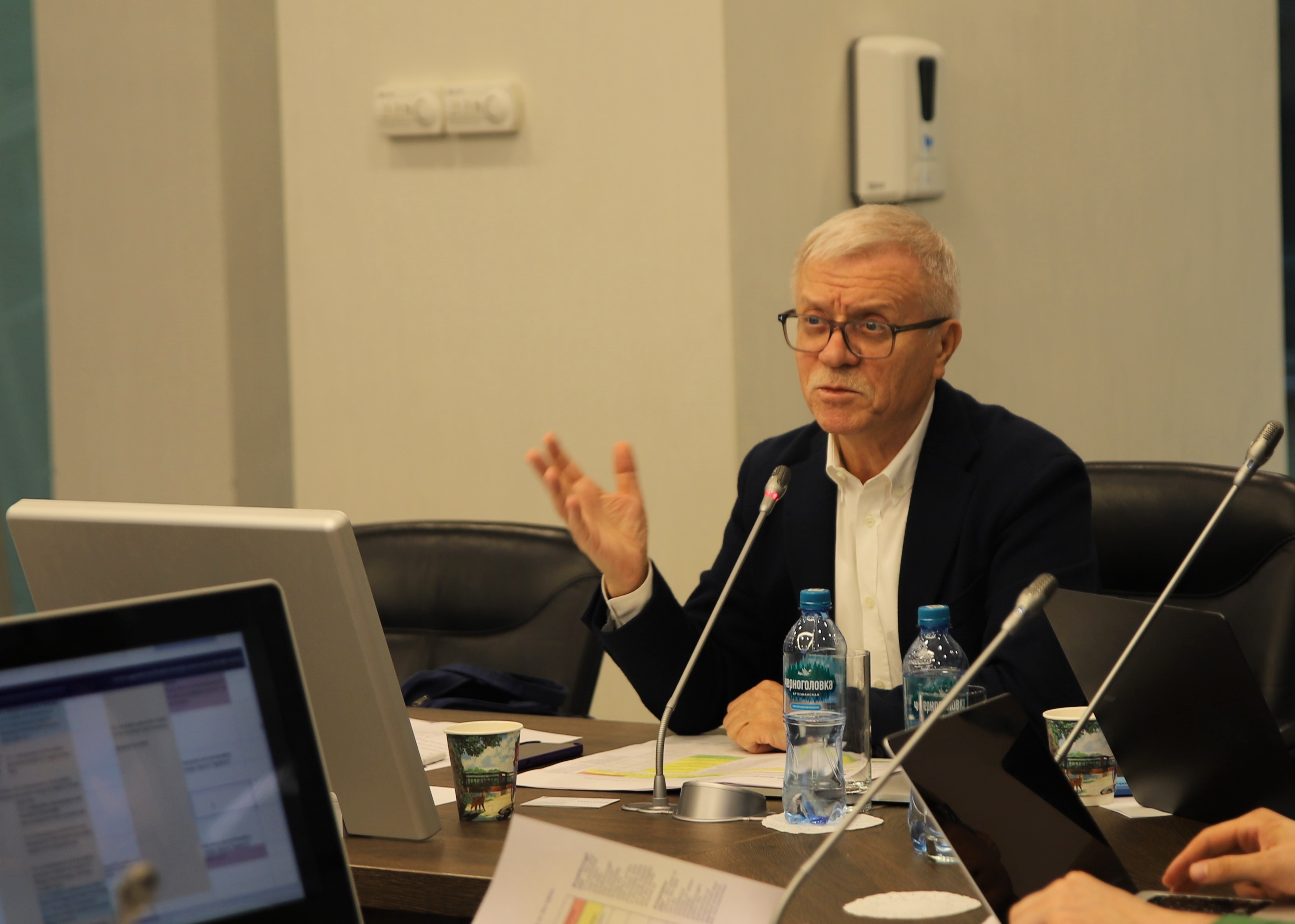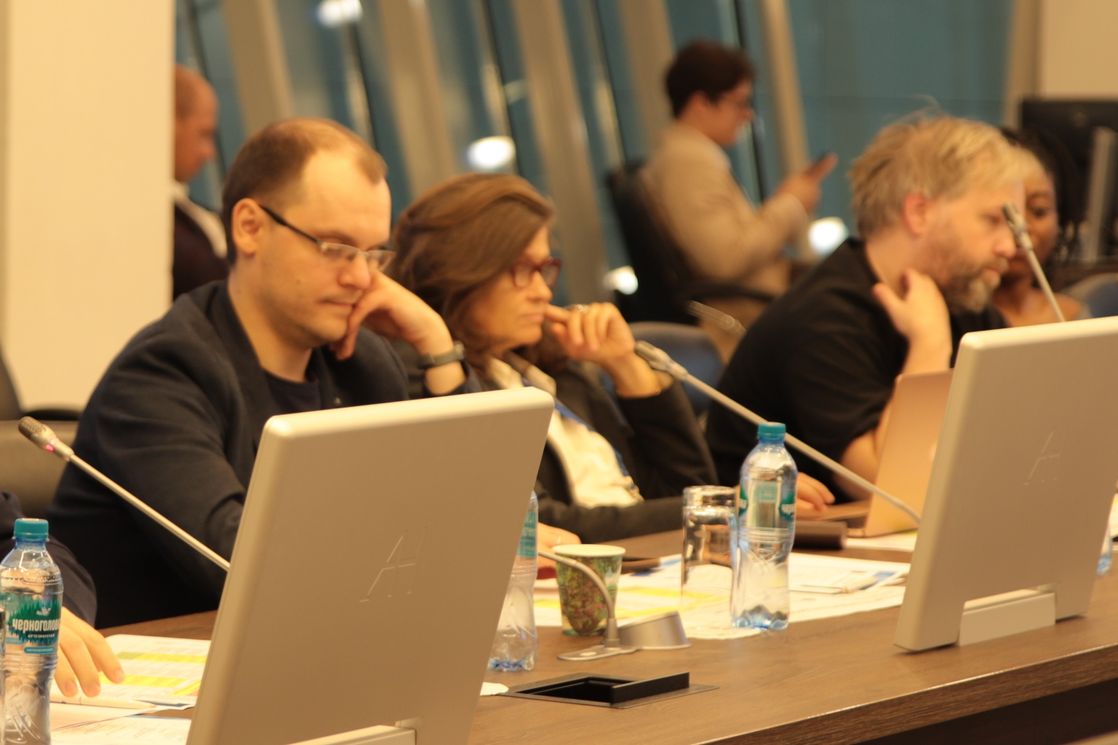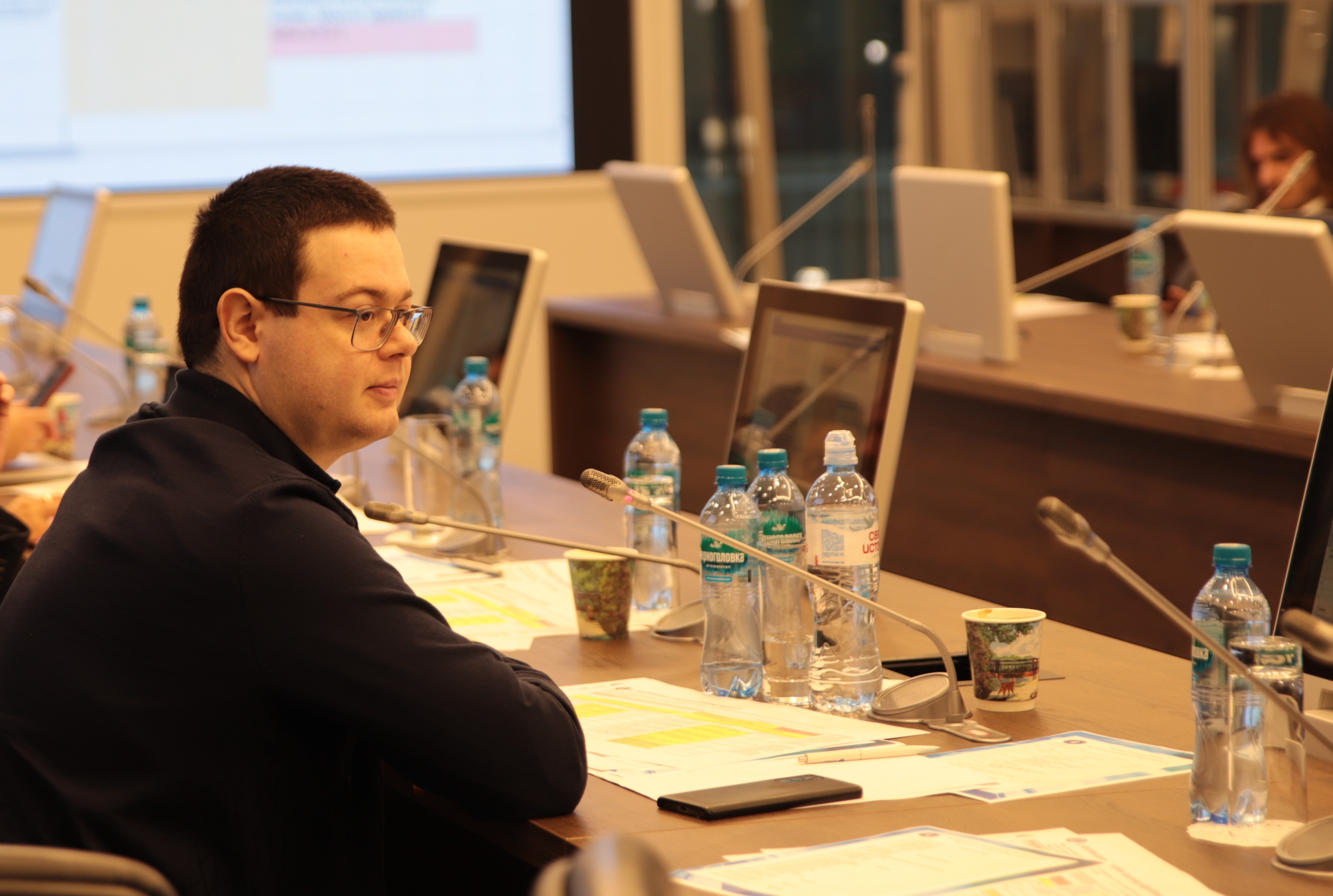Global AI Trends Discussed at International Foresight Workshop at HSE University
At an international foresight workshop on artificial intelligence held at HSE University, Russian and foreign scholars discussed the trends and challenges arising from the rapid development of AI.
The discussion centred on three key foresight areas: architectures, machine learning algorithms, and optimisation and mathematics; fundamental and generative models; governance, decision-making, and agent-based (multi-agent) models.

The event was organised by the HSE AI and Digital Science Institute, led by Director Alexey Naumov. Leading researchers from India, the UAE, and Germany took part in the workshop, together with heads of laboratories from the institute and other HSE divisions.
Foresight is a field of future studies that helps identify priorities for social, economic, and technological development, noted Alexander Sokolov, Director of the Educational Research and Educational Foresight Centre and Deputy Director of the HSE Institute for Statistical Studies and Economics of Knowledge (ISSEK), opening the discussion. ‘Foresight allows us to define the main challenges that are important in the global world. We see what changes are coming, which trends they will shape, how markets will evolve, and what technologies will be required for success,’ he said.

This year, ISSEK identified key trends in the development and dissemination of AI technologies, and this work is currently being updated. As part of this process, experts are taking part in interviews, foresight seminars, and data validation. The aim is to determine promising avenues for further AI research. A detailed report on the subject will be published at the end of 2025, Alexander Sokolov noted, inviting experts to contribute to its preparation.

Several speakers addressed machine learning, algorithms, and optimisation during the session. Among them was Maxim Rakhuba, Associate Professor at the HSE Faculty of Computer Science. ‘The high cost of training large neural network models makes the speed of this process a truly important parameter. Several promising methods were published last year, and I believe we can expect a rethinking and significant progress in this area in the near future,’ he said.
Aparajita Ojha, professor at the Indian Institute of Information Technology, Design, and Manufacturing, talked about the future of medical image analysis using generative technologies. Multimodal generative AI, she explained, accelerates the analysis of medical images. However, the technology is still at an early stage. ‘Neural networks are not making use of different methods, and some approaches are simply being ignored,’ she noted.

Denis Derkach, Head of the HSE Laboratory of Methods for Big Data Analysis, stressed that hybridisation in AI would soon be essential. This involves a comprehensive approach where different AI methods and technologies are combined with classical models to create systems that are more powerful and flexible than solutions based on a single methodology.

Incorporating scientific knowledge into AI models is one of the key ways of building reliable models in science, where data is always limited. At the same time, scientific knowledge can be expressed not only in mathematical formulae but also, for example, in information about which system parameters influence a response, said Michael Medvedev, Associate Professor at the HSE Joint Department of Organic Chemistry with the RAS Zelinsky Institute of Organic Chemistry.
The international foresight workshop at HSE University was organised in accordance with the decree of Russian President Vladimir Putin to hold a strategic session (an international foresight) in Russia on fundamental and exploratory research aimed at the further development of artificial intelligence.
See also:
School Students Master Communication with GigaChat at HSE and Sber Hackathon
In late December 2025, a unique competition was held at HSE University where participants solved challenges not by writing code, but solely by interacting with Sber’s GigaChat artificial intelligence model. The Improm(p)tu hackathon was an experiment less about programming skills than a new form of literacy: the ability to work effectively with AI by translating complex problems into a language neural networks can understand.
HSE Researchers Offer Guidance to Prevent Undergraduate Burnout
Researchers at the HSE Institute of Education have identified how much time students should ideally devote to their studies, extracurricular activities, and personal life to maintain strong academic performance without compromising their mental health. An analysis of responses from 2,753 students, combined with their actual academic results, revealed several risk factors—such as excessive homework—as well as positive factors, including sufficient sleep, regular exercise, and moderate participation in projects. Based on these findings, the researchers developed practical recommendations for both students and universities. The paper has been published in the European Journal of Education.
When a Virus Steps on a Mine: Ancient Mechanism of Infected Cell Self-Destruction Discovered
When a virus enters a cell, it disrupts the cell’s normal functions. It was previously believed that the cell's protective response to the virus triggered cellular self-destruction. However, a study involving bioinformatics researchers at HSE University has revealed a different mechanism: the cell does not react to the virus itself but to its own transcripts, which become abnormally long. The study has been published in Nature.
Researchers Identify Link between Bilingualism and Cognitive Efficiency
An international team of researchers, including scholars from HSE University, has discovered that knowledge of a foreign language can improve memory performance and increase automaticity when solving complex tasks. The higher a person’s language proficiency, the stronger the effect. The results have been published in the journal Brain and Cognition.
Artificial Intelligence Transforms Employment in Russian Companies
Russian enterprises rank among the world’s top ten leaders in AI adoption. In 2023, nearly one-third of domestic companies reported using artificial intelligence. According to a new study by Larisa Smirnykh, Professor at the HSE Faculty of Economic Sciences, the impact of digitalisation on employment is uneven: while the introduction of AI in small and large enterprises led to a reduction in the number of employees, in medium-sized companies, on the contrary, it contributed to job growth. The article has been published in Voprosy Ekonomiki.
Lost Signal: How Solar Activity Silenced Earth's Radiation
Researchers from HSE University and the Space Research Institute of the Russian Academy of Sciences analysed seven years of data from the ERG (Arase) satellite and, for the first time, provided a detailed description of a new type of radio emission from near-Earth space—the hectometric continuum, first discovered in 2017. The researchers found that this radiation appears a few hours after sunset and disappears one to three hours after sunrise. It was most frequently observed during the summer months and less often in spring and autumn. However, by mid-2022, when the Sun entered a phase of increased activity, the radiation had completely vanished—though the scientists believe the signal may reappear in the future. The study has been published in the Journal of Geophysical Research: Space Physics.
‘Engagement in the Scientific Process’: HSE Launches Master’s Programme in Neurobiology
The HSE University Academic Council has elected to launch a new Master's programme in Neurobiology for students majoring in Biology. Students of the programme will have access to unique equipment and research groups, providing them with the knowledge and experience to pursue careers in science, medicine and pharmacy, IT and neurotechnology, and education and HR services.
Banking Crises Drive Biodiversity Loss
Economists from HSE University, MGIMO University, and Bocconi University have found that financial crises have a significant negative impact on biodiversity and the environment. This relationship appears to be bi-directional: as global biodiversity declines, the likelihood of new crises increases. The study examines the status of populations encompassing thousands of species worldwide over the past 50 years. The article has been published in Economics Letters, an international journal.
Scientists Discover That the Brain Responds to Others’ Actions as if They Were Its Own
When we watch someone move their finger, our brain doesn’t remain passive. Research conducted by scientists from HSE University and Lausanne University Hospital shows that observing movement activates the motor cortex as if we were performing the action ourselves—while simultaneously ‘silencing’ unnecessary muscles. The findings were published in Scientific Reports.
Russian Scientists Investigate Age-Related Differences in Brain Damage Volume Following Childhood Stroke
A team of Russian scientists and clinicians, including Sofya Kulikova from HSE University in Perm, compared the extent and characteristics of brain damage in children who experienced a stroke either within the first four weeks of life or before the age of two. The researchers found that the younger the child, the more extensive the brain damage—particularly in the frontal and parietal lobes, which are responsible for movement, language, and thinking. The study, published in Neuroscience and Behavioral Physiology, provides insights into how age can influence the nature and extent of brain lesions and lays the groundwork for developing personalised rehabilitation programmes for children who experience a stroke early in life.


